San Francisco Stories
Jewish San Francisco
Families include: Aaron Fleishhacker, Louis Gerstle, Haas, Hellman, Levy Family's, Spreckels, Stern-Lilenthal, Levi Strauss, Adolph Sutro, Zellerbach
The presence of churches and synagogues was an integral part of the development of San Francisco in those early days. They started the first schools, charities, libraries, made it a place safe for women and children and established some of the area's pivotal businesses. For example, the Jews in San Francisco were influential in creating the City's first library and the Presbyterians created the first school and orphanage.
Of equal importance at the time was the succor these religious institutions provided their members.
The San Francisco Jews of the 1850s missed the familiarity of their homelands and clung to their religious traditions for stability. According to historian Fred Rosenbaum, religion for these Jews was a shield against the "immorality and depravity" that characterized San Francisco at that time.
The establishment of two separate synagogues in 1854 - Emmanu-el for the German Jews, and Sherith Israel helped solidify the division that would last well into the 20th century. The German Jews brought to America their European cultural bias against Eastern European Jews as inferior and considered themselves the "aristocrats of the emigres."
The Temple Emmanu-el congregation of 260 mostly German Jews soon moved into a newly built large and elegant synagogue on 450 Sutter St. in 1864. Dr. Julius Eckman, an active pro-Union supporter during the Civil War and ironically a Polish Jew, was the first rabbi to preside over the elite congregation.
July 27, 1860, Daily Alta California
THE HEBREW CEMETERIES.
The first Hebrew burial place established in San Francisco was in the fall of 1849, at a small place near the Presidio road. It was presented to the Israelites of San Francisco for this special purpose, and for a long time it not only served as a resting place of the dead of this city, but was also used by the Jews in other parts of California -- the bodies having been sent hither from Sacramento, Stockton and Marysville. The land was deeded to the Presidents of the Israelite Societies of this city, and has been used for that purpose until the present day.
The enclosure was a little less than an acre in extent. It was fenced in with wooden pickets and quite secluded from the world. The locality though appropriate being far removed from the profane tread of the busy city, and where the lonely character of the site was well adapted to its sacred character, was nevertheless ill adapted for burial purposes, owing to the sandy nature of the soil, in the summer time especially, being exposed to the full sweep of the gales, the slight covering was not infrequently blown away and the coffins exposed. The frequent mournful trains wending their way to the "Home of Peace," as the descendants of Abraham beautifully denominate their burial places, at last so nearly filled up the little space that our Hebrew citizen saw the necessity of establishing other cemeteries.
Though something of a difference has existed for some time among those of the Jewish persuasion, this ground was the common property of all. At present, the ground is full only room for about twenty more graves exists. The differences in religions opinions resulted in the establishment of separate societies the Sherith Israel, embracing the Jews from Poland and the far North of Europe, preferring to retain their ancient formalities: while the remainder, keeping pace with the times, advocated the introduction of certain innovations. It being found distasteful to one sect to have a common burial-ground, each made arrangements to purchase one for themselves the First Hebrew Benevolent Society acting with the Sherith Israel congregation, and the Eureka Benevolent Society with the others.
About six months ago, a place for the establishment of a new cemetery at the Mission Dolores was proposed by the Eureka Benevolent Society and the Congregation Emanu El. This was the burial ground, the dedication of which was described in yesterday's Alta. They gave $3000 for the lot of ten and a half acres, and enough more for improvements to make the whole cemetery cost up to the present time bout $12,000; and by the the time all the proposed work is done it was to have cost upwards of $15,000. It is a little beyond the Catholic Cemetery, and is believed to be of sufficient dimensions to serve for a century at least. It is eighteen times as large as the old grounds on the Presidio road, and while that was for all the Hebrews, this is only for the two societies above named, and the poor who die under their care or in the charge of their physician.
Tho officers of the "Home of Peace" Cemetery are as follows: President, Louis Tichner; Vice President, I. Rich; Treasurer, L. B. Vertheimer; Secretary. M. Meyblum; Trustees, Henry J. Labatt, David Stern, H. Gruenbaum and Mr. Goldsmith. The Board of Supervisors is composed of nine delegates, elected from the two societies, five and four by each alternately, to hold one year the election being in January. It is the intention of the societies to expend more money in adorning and beautifying their grounds with shrubbery, trees and gravel walks, and to make an evergreen fence inside the present one. It will undoubtedly prove a great ornament and valuable improvement to that part of the city.
Several weeks ago the Sherith Israel Congregation proceeded to carry out their long cherished plan of establishing their own cemetery; and having purchased an eligible lot for that purpose, even farther removed from town than any other now existing, they made the customary application to the Board of Supervisors for authority to go on with the enterprise. The lot is upon blocks 51, 52, 60 and 61. It will be walled with brick, and will have within it a brick chapel for funeral purposes. The grounds will be laid out into family plots, and be handsomely ornamented with flowers, trees and shrubbery. The distance will be upwards of three miles from the Plaza.
The petition was first referred by the Board to the Judiciary Committee, who at the next meeting were preparing to report, when it was a second time referred to the Committee on Health and Police, there having been an unaccountable opposition to the project from several quarters. To what this is due, it is difficult to say. There is no reason why the Sherith Israel congregation, with the Hebrew Benevolent and other Jewish societies should be denied the privilege of having their own cemetery. The reasons urged against it seem to be that it is located where the city, in its rapid progress will be likely soon to grow around it, and that it will thus be soon in the midst of habitations. The objection, we think, is not well taken. In all probability the city will not extend to the far-off Potrero Nuevo for some generations. The petition cannot be refused without the exhibition of an unjust impartiality, for the same privilege has been granted to others, and the proposed cemetery is the farthest of any from the city.
As for the effect of a cemetery upon property, Mr. Center -- who is one of the principal land-holders thereabouts -- takes the proper view of it. He believes that the value of his, and of all other property in that direction, will be enhanced by such expensive improvements as the Sherith Israel congregation intend to commence there; and it should be borne in mind that the locality referred to is opposite to high, bleak and rocky hills, where the march of population in all probability will not reach for untold yeas that no adjacent land could be in any way injured by the proposed cemetery.
In whatever light the subject is viewed, there is no good reason for the Board to refuse this religious society their request. Our Hebrew fellow citizens, as a general thing, are but seldom applicants for any public favors. Their religious, benevolent operations are conducted without ostentation among themselves, and certainly no denomination are less accustomed to intrude their religious opinions, or differences upon the community. The project recommends itself to every unbiased mind, and we trust that the Committee will be induced to act in the matter with a liberal and impartial judgment.
Temple Emmanu-el
The wealthier of two original Jewish congregations, representing the German-born Jews in early San Francisco. On Rosh Hashana of 1849 the young merchant Lewis Abraham Franklin's storage tent on Jackson Street became the site of the first Jewish service held in San Francisco. However, the first synagogue would not be established for five more years. A rift between those of German and Polish background marked a breakdown within the small Jewish community.
May 10, 1883, Los Angeles Herald
A Learned Rabbi
Dr. Elkan Cohu of the Temple Emmanuel, San Francisco, lectured last night at the Synagogue in this city. The learned and eloquent Doctor spoke before a large audience of Israelites and Gentiles that listened to his liberal ideas with close attention. He spoke of the liberal sentiments of the Israelites; that although they might be devout in their religions belief, they had such broad and liberal political views, that they did not vote for a man because he belonged to their ancient faith, but because they believed that the man with the most prudence and conservative ideas should be placed at the head of affairs, whether he should be Jew or Gentile.
The Doctor spoke of the uniform faithfulness of the Chosen People to the faith of the patriarchs and to the governments under which they lived. They were everywhere loyal to God and loyal to all organized civil governments. They were always true to the laws. In Germany, they were Germans in national idea; in France, French; in England, English; in America, Americans, and true as the needle to the pole in favor of freedom, order and law.
They had no beggars, and seldom ran for office, but were always industrious and generally thrifty in their worldly affairs. They were not proselytizers; but, while they were unchanged in their views under all governments directed by religious discipline and order, they had the greatest respect for the religious convictions of others, with which they never interfered. The learned Rabbi is a master of history and spoke as one having both knowledge and authority. The audience were very much edified by the discourse of the eminent speaker, and were greatly pleased at his liberal views and supreme command of history and of the character of the ancient race which he represents. All who heard him desired to hear him again at an early day.
July 1, 1898, San Francisco Call
Dr. Voorsanger's Prayer
WASHINGTON. June 30. Dr. Jacob Voorsanger, rabbi of Temple Emmanuel and professor of Semitic languages and literature at the University of California, Berkeley, pronounced the invocation at the opening of the Senate's session today. He prayed that the "flag under which we live, that for which our fathers fought, may forever be the sacred emblem of liberty until time shall be no more."
Sherith Israel
This building was actually the fifth one for the Congregation (including rented quarters) in less than fifty years, previous structures in the downtown area having burned down in San Francisco's frequent fires. Designed by a Mexican architect, Alfred Pissis, the structure is capped by a large dome rising eighty feet from the synagogue floor, resting on four large pendentives.
The synagogue design is inspired by Old World Sephardic traditions, including intricate Honduran mahogany woodwork, Italian stained glass windows depicting Biblical themes, and elaborate fresco wall paintings. The entire interior is embellished with calligraphic and other decorations inspired by Near East traditions. The windows on the west side show Moses with the Ten Commandments, with El Captain and Half-Dome of Yosemite National Park, as well as the American flag, visible in the background to emphasize Sherith Israel's Western and American heritage.
February 23, 1864, Sacramento Daily Union
Discourses on the Book or Genesis, by Rev. H. A. Henry, Rabbi Preacher of , of San Francisco, has been received from H. H. Bancroft & Co., of that city. Twelve discourses on the book of Genesis, from the Creation to the death of Joseph, with an Appendix, treating of the prophetical blessing of Jacob to his children, in which is explained one of the fundamental principles of the Jewish faith. The work is designed for the young. If this volume be favorably received, the author promises to continue the discourses to the end of the Pentateuch.
November 18, 1898, San Francisco Call
Congregation Sherith Israel Professor Margolis of the University of California will lecture this evening before the Congregation Sherith Israel, corner of Post and Taylor streets, at 8 o'clock.
March 14, 1900, San Francisco Call
Sherith Israel's Golden Jubilee
Congregation Sherith Israel is now in its golden jubilee year and elaborate preparations are being made to properly celebrate the event on April 22, the eve of the Passover festival. The synagogue, on the corner of Post and Taylor streets will be beautifully decorated for the occasion and appropriate services will be held. Rabbi Jacob Nieto will be assisted by Rabbis J. Voorsanger, M. S. Levy and Isidor Meyer of this city and Rabbi Friedlander of Oakland. The celebration will be a notable one in Jewish circles.
By 1865 about 4,000 Jews lived in San Francisco, involved in the clothing, fur and dry goods trade, especially jewelry, crockery, shoes and soap. Virtually all of the merchants in the city are Jewish.
By 1879, San Francisco's Jewish population had reached 16,000.
Many were respected for their business achievements and contributions to the city, yet San Francisco's first "Elite Directory" was divided into two parts: 1) Gentile; 2) Jewish.
December 22, 1889, Los Angeles Herald
HANUKKAH.
A Short Treatise an the Hebrew Feast of Light.
Tuesday night, December 26 (Tevet 3, 5650), began the Hebrew feast called Hanukkah, or the Feast of Lights, which lasts eight days, and is commemorated in honor of the victory of the brave Maccabees over the hosts of the King of Syria.
The name of this King was Antioch Epiphanes, which means Epiphanes the illustrious; but he was also called Antioch Epimanes, which means Epimanes the crazy one.
It was in the year 168 B. C. E., when Antioch Epiphanes, returned from his successful Egyptian war, that he issued a decree that in all the parts of his kingdom only one religion and one kind of service was going to be tolerated. The Jews were commanded to renounce the worship of Jehovah, the One, the invisible God, the God of their forefathers and of their children, and to adore Jupiter and all the other gods and goddesses of Greece.
In the Greek temples of his large realm he met with very little resistance. The priests of these heathen temples did not care very much whether they bowed down to this idol or that idol. But not so with the Jews, who, since the return from the Babylonian captivity, loved their God and their religion, and were ready to become martyrs and to sacrifice blood and treasure for their holy creed.
No sooner had this Antioch Epimanes heard that the Jews were determined to lay down their lives, rather than to yield to his cruel decree, than he sent Apollonius with a large army against Jerusalem, with the order to annihilate all the Jews. Apollonius pretended to have come as a friend, but on the Sabbath day after his arrival, he suddenly surprised the numerous synagogues of Jerusalem, and over 40,000 Israelites were killed, and as many more were sold into slavery.
But he was not satisfied with this cruel punishment. He ordered the temple to be desecrated and defiled; he robbed the temple's treasury of all its golden vessels, and marched away with a plunder of 1,800 talents of gold. Antioch, not satisfied with these cruelties, issued from his capital another royal decree, by virtue of which all Jewish ceremonials were forbidden, the books of the law were torn to pieces, divine services in the synagogues were forbidden and interdicted. The Jews were forced to attend the heathen service, and whosoever refused to appear was put to death.
Gloom and despair ruled in Palestine, and many weak-hearted and weak-minded people yielded to the threats of the crazy King and his cruel commanders
There lived in Jerusalem a man by the name of Eleasar, 90 years of age. He was much respected by all who knew him. The King sent for him, and ordered him to taste some food forbidden by the Jewish law. The King threatened him with instant death if he did not comply with the royal order. "I am on the brink of the grave," answered the old man; "kill me, and let me die for my God and my religion." And the cruel King immediately ordered him to be beheaded.
Then a Jewish widow and her seven sons were brought before Antiochus, charged with having refused to worship his idol. "Mother, do you love your children? Then tell them to kneel before my god." "I love my children as dearly as a mother can only love; but I love my God more. He will reward them for their loyalty, and punish you for your cruelty."
Then the King addressed the children: "Bow down before my idol, and I will shower royal favors upon you; disobey me, and you shall die one after another." "I cannot," answered the eldest; "for my God has commanded me, saying, 'I am the Lord thy God, who brought thee out of the land of Egypt.'" Exodus xx., 2. This refusal enraged the King, and he ordered that the boy should be killed on the spot.
The second son was then brought forth. "Acknowledge my idol as one of thy gods," said the King.
"How can I?" replied the boy. "The law tells us, 'Thou shalt have no other gods before me.' "
The King, enraged at his obstinacy, had him executed, and the third son was led in. Antiochus then lowered his demands by asking him merely to bow down before the idol; but the boy said: "I dare not. The word of God commands me, 'Thou shalt not bow down thyself to them.'" Exodus n., 5. And he also was ordered forth for execution.
The fourth son was then asked to acknowledge the idol merely as a divine who influenced the earth. "No," said he; "for it is said, 'Know, therefore, this day, and consider it in thine heart, that the Lord He is God in heaven above and upon the earth beneath; there is none else.'" Deut. iv., 29.
Having thus refused to comply with the King's wish, he too was led forth to execution, and the fifth son was brought in. Of him the King asked still less; he only requested of the boy to show the idol some reverence. "I must not," was the boy's reply, "for 'he that sacrifices unto any god save the Lord only, shall be utterly destitute and deserted.'" Exod. xxii, 20.
The King, enraged at being thus repeatedly scorned and derided, had him also put to death. The sixth son was then called into the King's presence, and he was dimply asked to deny his faith, and not to embrace idolatry.
"No," said the lad, "for God has thus spoken unto Israel, saying, 'The Lord has anointed thee this day to a sacred and a holy people.'" Deut. xxvi, 18.
At length the mother and her youngest son, a mere lad, the only survivors of that noble band of martyrs, were led before Antiochus. He tried all his powers of persuasion to make the child do his bidding, but in vain. Even his own hardened heart began to melt, and he would gladly have saved the poor child; but he could not, for hundreds were crowding round his throne, and all his royal dignity would be lost if it appeared that he was obliged to yield.
"On one condition," said he, addressing the child, "will I spare thy life. I shall drop this signet-ring of mine before this idol; pick it up, and thou shalt be saved." But the boy perceived the King's device. "What!" cried he; "shall I be more mindful of thine deceitful honor than of my God's?" And the boy's brave words sealed his doom.
"Let me kiss my child before his death," cried the poor mother. She kissed him and said : "When thou art in heaven tell Abraham, our ancestor, that he has a rival; for he erected the altar for the sacrifice of one son, but I have raised seven altars for the sacrifice of my seven sons."
For years were these barbarous cruelties continued, and still the people would neither submit nor yield.
But Israel was never forsaken, "He sleeps not and slumbers not, the eternal guardian of Israel;" and in due and proper time He always selects and sends His redeemers; men who value right and liberty, virtue and justice higher than life and all earthly treasures.
In the village of Modaim, situated on the Mount Modai, which is not very far from Jerusalem, there lived a man, Mathatias by name. He had five sons, Jochanan Gadi, Simon Thassi, Judah Maccabee, Eleazer Haveran and Jonathan Haphus. This Mathatias and his five sons enjoyed the highest confidence of all the neighbors for their manly behavior and deep religious sentiments. As the name of one of their ancestors was named Hasmon, their whole family name was the Asmoneans.
The Syrian governor, Philippus, had heard of the great influence these men exercised over all their neighbors. He therefore thought if he could induce them to give up their religion, their example would soon be followed by all the Israelites. He sent Appellas to Modaim and approached the Asmoneans with the request to offer sacrifices upon one of the altars he had there erected, and promised them on the part of his King the highest offices and the richest rewards if they would comply with his proposal. But the Asmoneans not only flatly refused obedience, but before all the assembled people they loudly declared their indignation at such offers and promises.
The sign for a stern resistance had been given. The ire of the people had been aroused, and in a short time numbers of brave Jews flocked around the aged Mathatias, ready to offer blood and treasure on the altar of their holy religion. Philippus, the Governor, became seriously alarmed, and collected his troops to crush the Jews to the ground. He met with one crowd of Israelites numbering about one thousand men. He tried his utmost to persuade them to lay down their arms, to disperse and go to their homes. But when they refused to obey his orders, he kept quiet until the next Sabbath day, believing that they were not going to resist on the holy Sabbath, he would then surprise them and kill them all without grace or mercy.
But the aged Mathatias had already declared to them that during a war the Sabbath required no observance, and that his followers were permitted to defend and protect their holy religion on the Sabbath day.
And as the number of his followers had steadily increased, they were not so easily exposed to surprises. They acted in self defense, and they were very successful. Here and there they penetrated into the cities, destroying, the heathen altars and began to copy the scrolls of the law which they had saved from the general destruction and re-opened the Hebrew divine service. They were determined to conquer or to die, but, under any circumstances, to live and to die as Israelites, worshipers of Jehovah, the one and indivisible God.
A few months after this happy beginning the old and venerable Mathatias died. All Israel mourned over the loss of this pious and veteran hero. On his death-bed he had appointed the lionhearted Judah as his successor in the command, and, indeed, he could not have made a better choice; for this heroic general defeated the enemy in several pitched battles. He commenced the victorious march to Jerusalem and was crowned by the daughters of Israel, singing songs of praise; the white-clad priests returned to their sacred profession; Judah, the warrior, put away his steel armor and donned the peace garments of his priesthood; priests, Levites and Israelites marched to the house of God, cleansed it from Syrian pollution and reconsecrated it to the holy mission of the God of Israel. Then they sang the sacred song, "Mi Komocho Boelim Adonai," (Who is like unto thee among the mighty ones, 0 Lord?) And while the song and the music filled the mighty temple Judah ascended the platform and lighted the tapers in the candlestick. The people listened with the deepest devotion, and their hearty "Amen" resounded throughout the whole temple. For eight days were those festivities continued. And they were indeed of sincere joy; the people knew what they owed to their God and to the brave Maccabees. Let us then continue to burn the merry Hanukkah lights; let us remember the twenty-fifth day of Kislev. 164 B. C. E.; let us not forget to instruct our children in this glorious history, and above all, let us not forget to thank. God and to say, " Thank ye the Lord, for he is good, for his mercy endureth forever."

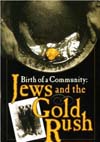
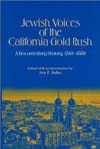
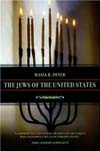
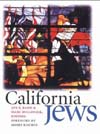
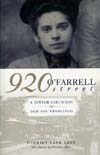
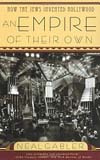
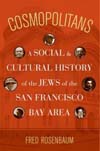
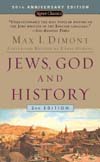
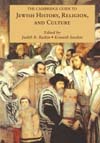

 Copyright ~ 1998-2018.
Copyright ~ 1998-2018. 